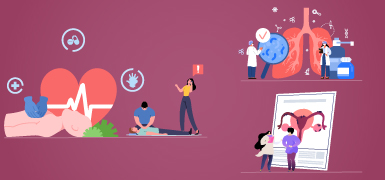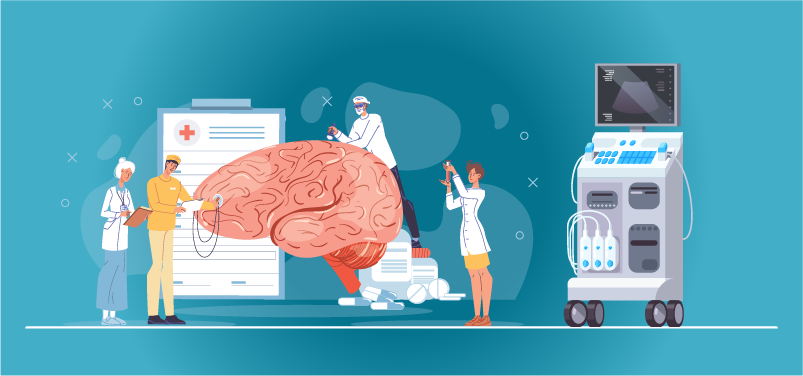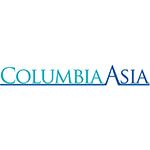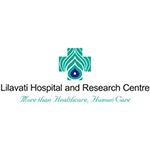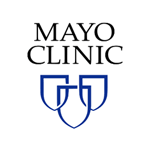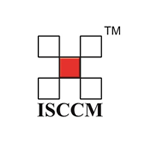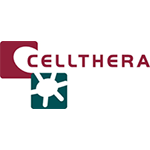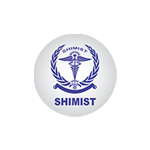
-
Skill Levelexpert
-
Lectures1 Video
-
Enrolled 943 students enrolled
 Free
Free
 Free
Free
-
Skill Levelexpert
-
Lectures1 Video
-
Enrolled 943 students enrolled
-
Sample Certificate

Key concepts covered include:
An overview of
- Risk factors associated with VAP
- Diagnosis of VAP with the help of different cultures and techniques
- Identifying the level of infection
- Management
What you'll learn
Every year about 5 million patients are admitted to the intensive care unit (ICU) in India and assisted by a mechanical ventilator. A mechanical ventilator is the most often required equipment in the ICU and emergency department, which provides respiratory support to ill patients. There are various complications associated with a mechanical ventilator, out of which the most common complication includes system-related complications, ventilator related complications, and ventilator acquired pneumonia (VAP). read more »»
It is important to prevent or reduce the potential complications of Mechanical Ventilation in the patients. Some of them may be related temporally and are not due to mechanical ventilation, but many are a direct result of positive-pressure ventilation. Ventilator Acquired Pneumonia is nosocomial pneumonia occurring in patients who are mechanically ventilated for more than 48 hours.The incidence of VAP increases to 10-30% after 48-72 hours of timeframe. Depending on the causative organism and individual comorbidities, mortality rates can range from 25-70%. Almost about 60% of VAP involve gram-negative bacilli of Pseudomonas aeruginosa and Acinetobacter spp and 20% of the cases are associated with gram-positive Staphylococcus aureus. Timely administration of antibiotic therapy is a priority with treatment, as mortality increases with delay (if not given within 24hours of diagnosis).
Obtain endotracheal secretions from bronchoalveolar lavage (BAL) to confirm causative organism and treat with antibiotics. It is very important to prevent pneumonia in patients who are mechanical ventilator as it is one of the serious infection. It is also important to manage patients who are suffering from ventilator-associated pneumonia. All the critical care physicians and doctors working in the emergency department should know the complete regime for the prevention and management of ventilator-associated pneumonia.
By the end of this course, you will be able to understand the risk factors associated with VAP, learn the diagnosis of VAP with the help of different cultures and techniques for identifying the level of infection and provide management to the patients suffering from VAP.
Who should attend?
All Healthcare personnel, such as
- Physicians
- Dentists
- Nurses
- Paramedical Staff
- Pharmacists and Physicians practicing Alternative Medicine (AYUSH)
- Respiratory therapists
Instructor

Consultant, Critical Care Medicine, Apollo Hospital
Hyderabad
Instructor


Consultant, Critical Care Medicine, Apollo Hospital
Hyderabad

-
Skill Levelexpert
-
Lectures1 Video
-
Enrolled 943 students enrolled
 Free
Free
 Free
Free
Instructor


Consultant, Critical Care Medicine, Apollo Hospital
Hyderabad
Certificate
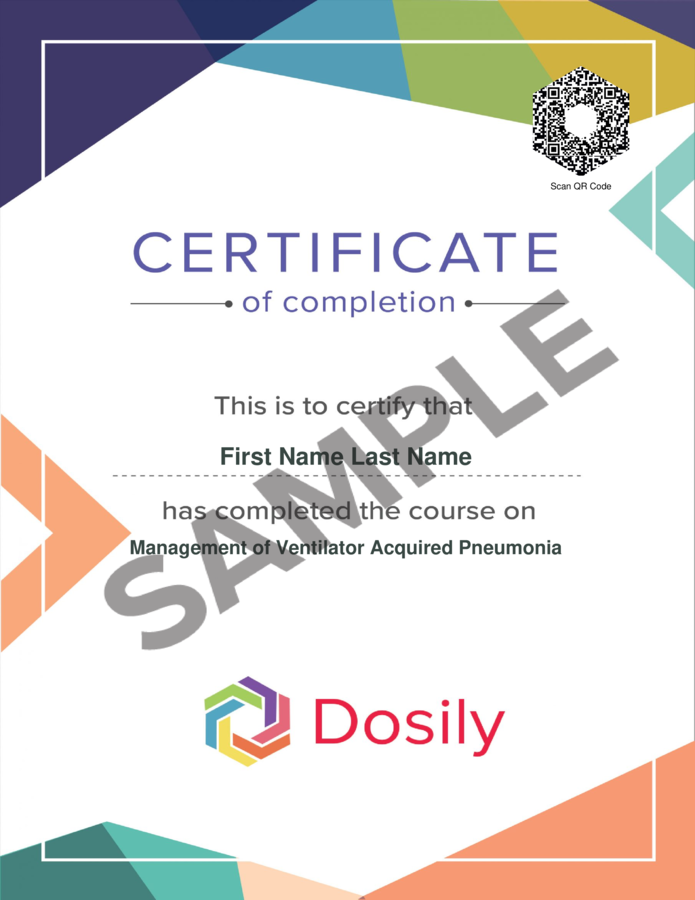
Management of Ventilator Acquired Pneumonia
 943 Users Enrolled
943 Users Enrolled

 Last Updated 01/2022
Last Updated 01/2022
-
Sample Certificate
-
Lectures1 Video
-
Enrolled 943 Students enrolled
Other Top Rated Courses by Dr. Niranjan Panigrahi
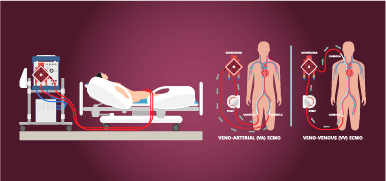
read more
https://storage.googleapis.com/master-transformer-9446/DOSILY/Kite%20to%20Dosily%203/Extracorporeal%20CO2%20Removal%20-%20For%20Severe%20ARDS%20patient/Extracorporeal%20CO2%20Removal%20-%20for%20Severe%20ARDS%20Patient_Explainer.mp4
Extracorporeal CO2 Removal – For Severe ARDS Patient
 5.5K
5.5K

free
Extracorporeal CO2 Removal – For Severe ARDS Patient

read more
INR 799
https://storage.googleapis.com/master-transformer-9446/DOSILY/Kite%20To%20Dosily/Gastrointestinal%20Bleeding/Gastro%20intestinal%20bleeding-%20EXPL.mp4
Gastrointestinal Bleeding
 2K
2K

₹ 799
Gastrointestinal Bleeding
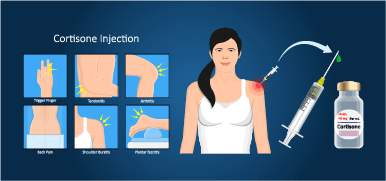
read more
INR 799
https://storage.googleapis.com/master-transformer-9446/DOSILY/Kite%20To%20Dosily/Management%20of%20the%20Patient%20On%20Chronic%20Steroid%20Therapy/Management%20of%20the%20Patient%20On%20Chronic%20Steroid%20Therapy_exp.mp4
Management of the Patient On Chronic Steroid Therapy
 2.1K
2.1K

₹ 799
Management of the Patient On Chronic Steroid Therapy

read more
INR 799
https://storage.googleapis.com/master-transformer-9446/DOSILY/Kite%20To%20Dosily/Acute%20Liver%20Failure/Acute%20liver%20failure%20Explainer.mp4
Acute Liver Failure
 2.2K
2.2K

₹ 799
Acute Liver Failure

read more
INR 799
https://storage.googleapis.com/master-transformer-9446/DOSILY/Kite%20To%20Dosily/Approach%20to%20Chronic%20kidney%20disease/Approach%20to%20Chronic%20Kidney%20Disease.mp4
Approach to Chronic Kidney Disease
 6.4K
6.4K

₹ 799
Approach to Chronic Kidney Disease
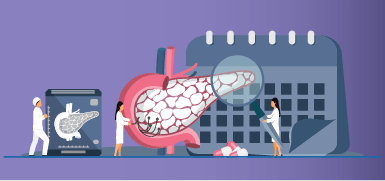
read more
INR 999
https://storage.googleapis.com/master-transformer-9446/DOSILY/Kite%20To%20Dosily/Approach%20to%20Severe%20Acute%20Pancreatitis/Acute_pancreatitis%20Explainer.mp4
Approach to Severe Acute Pancreatitis
 2.2K
2.2K

₹ 999
Approach to Severe Acute Pancreatitis
Related Courses
Essentials of Intensive Care: Cardio-Respiratory, Gynecological & Obstetric Emergencies
 6K
6K
₹ 5,000
Essentials of Intensive Care: Cardio-Respiratory, Gynecological & Obstetric Emergencies
Principles of Renal Replacement Therapy
 3.9K
3.9K

₹ 999
Principles of Renal Replacement Therapy
Oxygen: A Double-Edged Sword?
 3.5K
3.5K

₹ 999
Oxygen: A Double-Edged Sword?
Ultrasound-Guided Neurological Examination in the ICU
 3.8K
3.8K

₹ 999
Ultrasound-Guided Neurological Examination in the ICU

read more
INR 499
https://storage.googleapis.com/master-transformer-9446/DOSILY/Kite%20to%20Dosily%203/Pathogenesis%20of%20Asthma/Pathogenesis%20of%20Asthma_Dr.Priyanka%20Sachdev_Explainer.mp4
Pathogenesis of Asthma
 7.1K
7.1K

₹ 499
Pathogenesis of Asthma

read more
https://storage.googleapis.com/master-transformer-9446/DOSILY/Kite%20to%20Dosily%203/Commonly%20Uncommon%20Encountered%20Cases%20of%20Blunt%20Abdominal%20Trauma/Commonly%20Uncommon%20Encountered%20Cases%20of%20Blunt%20Abdominal%20Trauma_Explainer.mp4
Commonly Uncommon Encountered Cases of Blunt Abdominal Trauma
 10.3K
10.3K

free
Commonly Uncommon Encountered Cases of Blunt Abdominal Trauma
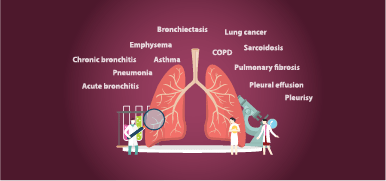
read more
https://storage.googleapis.com/master-transformer-9446/DOSILY/Kite%20to%20Dosily%203/Case%20Based%20Approach%20to%20Acute%20Diffuse%20Parenchymal%20Lung%20Disease/Case%20Based%20Approach%20to%20Acute%20Diffuse%20Parenchymal%20Lung%20Disease_Explainer.mp4
Case Based Approach to Acute Diffuse Parenchymal Lung Disease
 7K
7K

free
Case Based Approach to Acute Diffuse Parenchymal Lung Disease
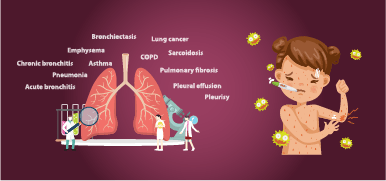
read more
https://storage.googleapis.com/master-transformer-9446/DOSILY/Kite%20to%20Dosily%203/Rise%20of%20the%20Phoenix/Rise%20of%20The%20Phoenix_Explainer.mp4
Acute Respiratory Distress Syndrome And Its Diagnostic Challenge
 8.2K
8.2K

free
Acute Respiratory Distress Syndrome And Its Diagnostic Challenge
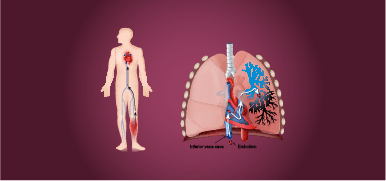
read more
https://storage.googleapis.com/master-transformer-9446/DOSILY/Kite%20to%20Dosily%203/H1N1%20ARDS%20with%20Pulmonary%20Embolism%20%E2%80%93%20A%20Case%20Presentation/H1N1%20ARDS%20with%20Pulmonary%20Embolism%20-%20a%20Case%20Presentation_Explainer.mp4
H1N1 ARDS with Pulmonary Embolism – A Case Presentation
 6.2K
6.2K

free
H1N1 ARDS with Pulmonary Embolism – A Case Presentation
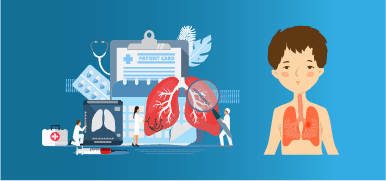
read more
https://storage.googleapis.com/master-transformer-9446/DOSILY/Kite%20to%20Dosily%203/Tricky%20Pediatric%20Case%20%E2%80%93%20Foreign%20Body%20Aspiration/Tricky%20Pediatric%20Case%20-%20Foreign%20Body%20Aspiration_Explainer.mp4
Foreign Body Aspiration – A Tricky Pediatric Case
 7.9K
7.9K
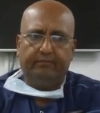
free
Foreign Body Aspiration – A Tricky Pediatric Case

read more
https://storage.googleapis.com/master-transformer-9446/DOSILY/Kite%20to%20Dosily%203/Extracorporeal%20CO2%20Removal%20-%20For%20Severe%20ARDS%20patient/Extracorporeal%20CO2%20Removal%20-%20for%20Severe%20ARDS%20Patient_Explainer.mp4
Extracorporeal CO2 Removal – For Severe ARDS Patient
 5.5K
5.5K

free
Extracorporeal CO2 Removal – For Severe ARDS Patient
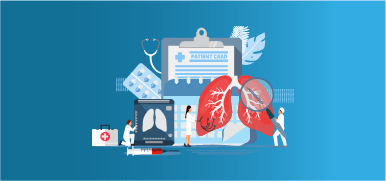
read more
https://storage.googleapis.com/master-transformer-9446/DOSILY/Kite%20to%20Dosily%203/Large%20endobronchial%20Foreign%20body%20Removal/Large%20endobronchial%20Foreign%20body%20Removal_Explainer.mp4
Large Endobronchial Foreign Body Removal
 5.1K
5.1K

free
Large Endobronchial Foreign Body Removal
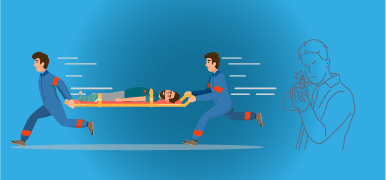
read more
https://storage.googleapis.com/master-transformer-9446/DOSILY/Kite%20to%20Dosily%203/Gun%20shot%20Injuries/Gun%20Shot%20Injuries_Course%20video.mp4
Gun Shot Injuries And Its Management
 8K
8K

free
Gun Shot Injuries And Its Management

read more
https://storage.googleapis.com/master-transformer-9446/DOSILY/Kite%20to%20Dosily%203/Endobronchial%20Luminization/Endobronchial%20Luminization_Explainer.mp4
Endobronchial Luminization
 4.7K
4.7K

free
Endobronchial Luminization
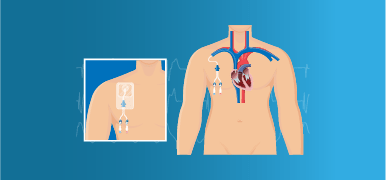
read more
https://storage.googleapis.com/master-transformer-9446/DOSILY/Kite%20to%20Dosily%203/ECG%20Guided%20Central%20Venous%20Cannulation/ECG%20Guided%20Central%20Venous%20Cannulation_Explainer.mp4
ECG Guided Central Venous Cannulation
 7.7K
7.7K
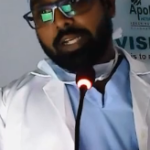
free
ECG Guided Central Venous Cannulation
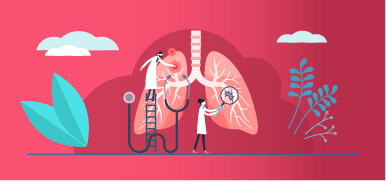
read more
https://storage.googleapis.com/master-transformer-9446/DOSILY/Kite%20to%20Dosily%203/Post%20COVID%20Impact%20on%20the%20Respiratory%20System/Post-COVID%20Impact%20on%20the%20Respiratory%20System_Explainer.mp4
Post-COVID Impact on the Respiratory System
 19.3K
19.3K

free
Post-COVID Impact on the Respiratory System

read more
https://storage.googleapis.com/master-transformer-9446/DOSILY/Kite%20to%20Dosily%203/COVID-19%20and%20the%20Pulmonary%20System/COVID-19%20and%20Pulmonary%20System_Explainer.mp4
COVID-19 and the Pulmonary System
 19.8K
19.8K

free
COVID-19 and the Pulmonary System

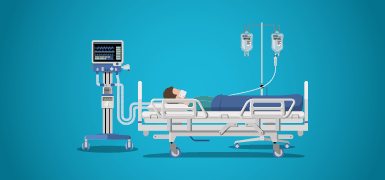
read more
INR 799
https://storage.googleapis.com/master-transformer-9446/DOSILY/IP%20Courses/Introduction%20to%20Mechanical%20Ventilation/Introduction%20to%20Mechanical%20Ventilation_V2.mp4
Introduction to Mechanical Ventilation
 44.2K
44.2K

₹ 799
Introduction to Mechanical Ventilation

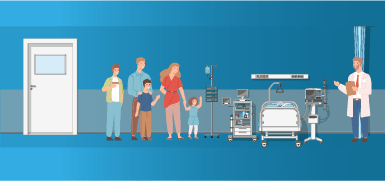
read more
https://storage.googleapis.com/master-transformer-9446/DOSILY/Kite%20To%20Dosily-2/Administrative%20challenges%20in%20management%20of%20ICU/Administrative%20challenges%20in%20management%20of%20ICU-EXPL.mp4
Administrative Challenges in Management of ICU
 45.9K
45.9K

free
Administrative Challenges in Management of ICU

read more
https://storage.googleapis.com/master-transformer-9446/DOSILY/IP%20Courses/Fundamentals%20of%20Non-Invasive%20Ventilation/Fundamentals%20of%20Non-Invasive%20Ventlation_Explainer.mp4
Fundamentals of Non-Invasive Ventilation
 7.6K
7.6K

free
Fundamentals of Non-Invasive Ventilation
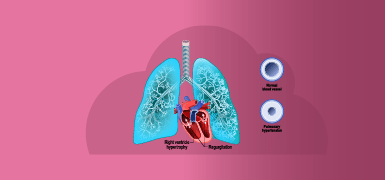
read more
https://storage.googleapis.com/master-transformer-9446/DOSILY/IP%20Courses/Pulmonary%20Hypertension/Pulmonary%20Hypertension_Explainer.mp4
Pulmonary Hypertension
 6.6K
6.6K

free
Pulmonary Hypertension
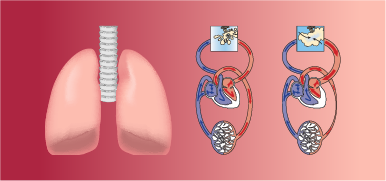
read more
INR 799
https://storage.googleapis.com/master-transformer-9446/DOSILY/Kite%20to%20Dosily%203/Pulmonary%20Odema%20and%20its%20Management/Pulmonary%20Edema%20and%20its%20Management_Explainer.mp4
Pulmonary Oedema and its Management
 5.6K
5.6K

₹ 799
Pulmonary Oedema and its Management
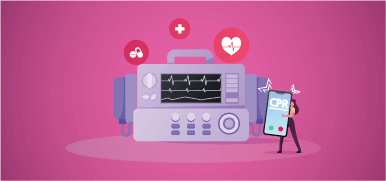
read more
https://storage.googleapis.com/master-transformer-9446/DOSILY/Kite%20to%20Dosily%203/Shock%20and%20Its%20Management%20in%20Children/shock%20and%20its%20management%20in%20children.mp4
Shock and Its Management in Children
 22.2K
22.2K

free
Shock and Its Management in Children
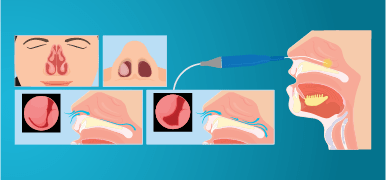
read more
INR 499
https://storage.googleapis.com/master-transformer-9446/DOSILY/Kite%20to%20Dosily%203/Anesthetic%20Principles%20in%20Trauma/anesthetic%20principles%20in%20trauma%20new.mp4
Anesthetic Principles in Trauma
 7.3K
7.3K

₹ 499
Anesthetic Principles in Trauma

read more
https://storage.googleapis.com/master-transformer-9446/DOSILY/Kite%20to%20Dosily%203/Approach%20to%20Fever%20in%20Children/approach%20to%20fever%20in%20children_Explainer.mp4
Approach to Fever in Children
 28.2K
28.2K

free
Approach to Fever in Children

read more
https://storage.googleapis.com/master-transformer-9446/DOSILY/Kite%20to%20Dosily%203/Management%20of%20Shock%20in%20Trauma/management%20of%20shock%20in%20trauma_Explainer.mp4
Management of Shock in Trauma
 25K
25K

free
Management of Shock in Trauma
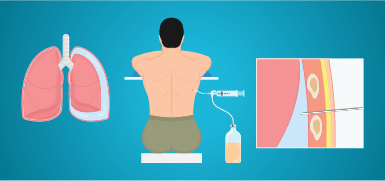
read more
INR 499
https://storage.googleapis.com/master-transformer-9446/DOSILY/Kite%20to%20Dosily%203/Trauma%20Air%20way%20management/Trauma%20Air%20way%20management_Explainer.mp4
Trauma: Air way management
 8K
8K

₹ 499
Trauma: Air way management
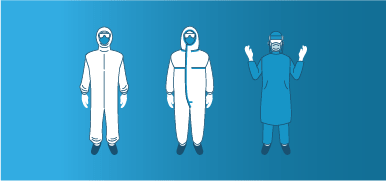
read more
https://storage.googleapis.com/master-transformer-9446/DOSILY/Kite%20to%20Dosily%203/PPE%20-%20An%20Essential%20to%20COVID-19/PPE%20-%20An%20Essential%20to%20COVID-19_Explainer.mp4
PPE – An Essential to COVID-19
 18.5K
18.5K

free
PPE – An Essential to COVID-19

read more
https://storage.googleapis.com/master-transformer-9446/DOSILY/Kite%20to%20Dosily%203/Geriatric%20endocrinology_Batch_2/Geriatric%20endocrinology.mp4
Geriatric Endocrinology
 19.2K
19.2K

free
Geriatric Endocrinology
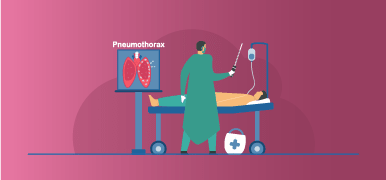
read more
INR 799
https://storage.googleapis.com/master-transformer-9446/DOSILY/IP%20Courses/Management%20of%20Pneumothorax/Management%20of%20Pneumothorax_Explainer%20Video%20(1).mp4
Management of Pneumothorax
 6.5K
6.5K

₹ 799
Management of Pneumothorax

read more
https://storage.googleapis.com/master-transformer-9446/DOSILY/IP%20Courses/The%20Metabolic%20Syndrome/The%20Metabolic%20Syndrome_Explainer%20Video.mp4
The Metabolic Syndrome
 12K
12K

free
The Metabolic Syndrome
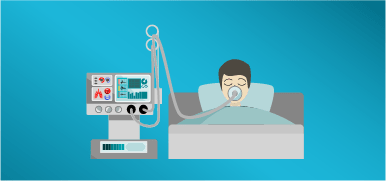
read more
INR 999
https://storage.googleapis.com/master-transformer-9446/DOSILY/IP%20Courses/Non%20Invasive%20Ventilation/Non-invasive%20ventilation%20(NIV).mp4
Non Invasive Ventilation (NIV)
 9.4K
9.4K

₹ 999
Non Invasive Ventilation (NIV)

read more
INR 499
https://storage.googleapis.com/master-transformer-9446/DOSILY/Kite%20to%20Dosily%203/Geriatric%20Respiratory%20Problems_Batch_2/Geriatric%20Respiratory%20Problems.mp4
Geriatric Respiratory Problems
 6.1K
6.1K

₹ 499
Geriatric Respiratory Problems

read more
https://storage.googleapis.com/master-transformer-9446/DOSILY/Kite%20to%20Dosily%203/Preventive%20Care%20in%20Geriatrics_Batch_2/Preventive%20care%20in%20Geriatrics.mp4
Preventive care in Geriatrics
 11.3K
11.3K

free
Preventive care in Geriatrics

read more
https://storage.googleapis.com/master-transformer-9446/DOSILY/Kite%20To%20Dosily-2/Constipation%20and%20its%20management/Constipation%20and%20its%20management.mp4
Constipation and its Management
 14.4K
14.4K

free
Constipation and its Management
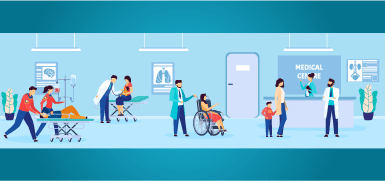
read more
https://storage.googleapis.com/master-transformer-9446/DOSILY/Kite%20To%20Dosily-2/Emergency%20and%20Triage%20-%20Guidelines%20%26%20Treatment%20Protocols/Emergency%20%26%20Triage%20-%20Guidelines%20and%20Treatment%20Protocols-EXPL.mp4
Emergency & Triage – Guidelines and Treatment Protocols
 11.2K
11.2K

free
Emergency & Triage – Guidelines and Treatment Protocols

read more
https://storage.googleapis.com/master-transformer-9446/DOSILY/Kite%20To%20Dosily/Pharmacotherapy%20and%20surgical%20management%20of%20obesity/Pharmacotherapy%20and%20surgical%20management%20of%20obesity%20patients%20-EXPL.mp4
Pharmacotherapy and Surgical Management of Obesity
 9.8K
9.8K

free
Pharmacotherapy and Surgical Management of Obesity
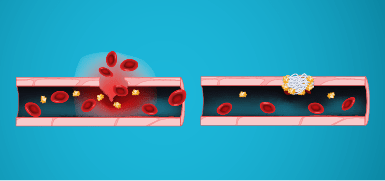
read more
INR 799
https://storage.googleapis.com/master-transformer-9446/DOSILY/Kite%20To%20Dosily/Bleeding%20and%20Hemostatic%20disorders/Bleeding%20and%20hemostatic%20disorders%20explainer.mp4
Bleeding and Hemostatic Disorders
 2.1K
2.1K

₹ 799
Bleeding and Hemostatic Disorders
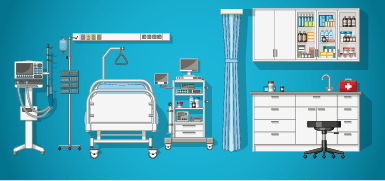
read more
INR 799
https://storage.googleapis.com/master-transformer-9446/DOSILY/Kite%20To%20Dosily/ICU%20design/ICU%20DESGIN.mp4
ICU design
 2.7K
2.7K

₹ 799
ICU design

read more
INR 999
https://storage.googleapis.com/master-transformer-9446/DOSILY/Kite%20To%20Dosily/Approach%20to%20chest%20pain%20in%20Emergency%20Room%20(ER)/Approach%20to%20chest%20pain%20in%20ER.mp4
Approach to chest pain in Emergency Room (ER)
 2.4K
2.4K

₹ 999
Approach to chest pain in Emergency Room (ER)
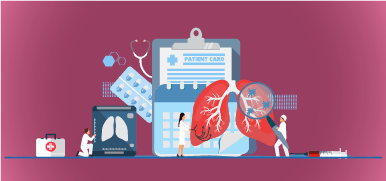
read more
INR 799
https://storage.googleapis.com/master-transformer-9446/DOSILY/Kite%20To%20Dosily/Respiratory%20failure/Respiratory%20Failure.mp4
Respiratory Failure
 2.8K
2.8K

₹ 799
Respiratory Failure

read more
INR 799
https://storage.googleapis.com/master-transformer-9446/DOSILY/Kite%20To%20Dosily/ICU%20staffing/ICU%20Staffing_V1.mp4
ICU staffing
 2.5K
2.5K

₹ 799
ICU staffing
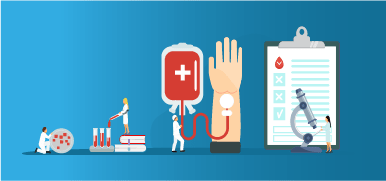
read more
https://storage.googleapis.com/master-transformer-9446/DOSILY/Kite%20To%20Dosily/Regulations%20for%20Blood%20Banks/Regulations%20for%20Blood%20Banks_EXPL.mp4
Regulations for Blood Banks
 9.3K
9.3K

free
Regulations for Blood Banks

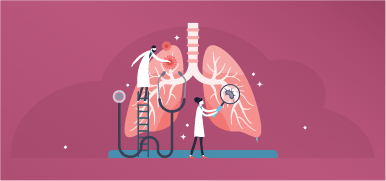
read more
INR 799
https://storage.googleapis.com/master-transformer-9446/DOSILY/IP%20Courses/Hands%20on%20Management%20of%20Bronchial%20Asthma/Hands%20on%20management%20of%20Bronchial%20Asthma-.mp4
Hands on Management of Bronchial Asthma – Focusing on the Practicalities
 34.4K
34.4K

₹ 799
Hands on Management of Bronchial Asthma – Focusing on the Practicalities

read more
https://storage.googleapis.com/master-transformer-9446/DOSILY/IP%20Courses/ECG%20recognition%20of%20Arrhythmias/ECG%20Recognition%20of%20Arrhythmias.mp4
ECG recognition of Arrhythmias
 15.9K
15.9K

free
ECG recognition of Arrhythmias

read more
https://storage.googleapis.com/master-transformer-9446/DOSILY/IP%20Courses/Being%20Healthy%20%E2%80%93%20The%20New%20Normal/Being%20Healthy%20-%20The%20New%20Normal.mp4
Being Healthy – The New Normal
 25.8K
25.8K
free
Being Healthy – The New Normal

read more
https://storage.googleapis.com/master-transformer-9446/DOSILY/IP%20Courses/Training%20Of%20HCWs%20On%20COVID-19/Training%20Of%20HCWs%20On%20COVID-19.mp4
Training Of HCWs On COVID-19
 40.5K
40.5K

free
Training Of HCWs On COVID-19
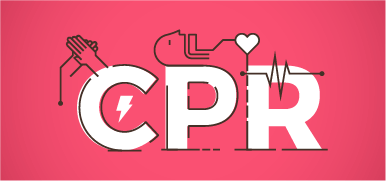
read more
https://storage.googleapis.com/master-transformer-9446/DOSILY/IP%20Courses/Training%20Of%20HCWs%20On%20Special%20Precautions%20For%20Performing%20CPR%20On%20COVID-19%20Patients/Performing%20CPR%20On%20COVID-19%20Patients.mp4
Training Of HCWs On Special Precautions For Performing CPR On COVID-19 Patients
 39.7K
39.7K

free
Training Of HCWs On Special Precautions For Performing CPR On COVID-19 Patients

read more
https://storage.googleapis.com/master-transformer-9446/DOSILY/IP%20Courses/Training%20Of%20HCWs%20Working%20In%20Laboratories%20On%20COVID-19/Training%20Of%20HCWs%20Working%20In%20Laboratories%20On%20COVID-19.mp4
Training Of HCWs Working In Laboratories On COVID-19
 36.4K
36.4K

free
Training Of HCWs Working In Laboratories On COVID-19
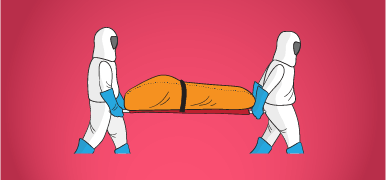
read more
https://storage.googleapis.com/master-transformer-9446/DOSILY/IP%20Courses/Dead%20Body%20Management%20For%20COVID-19%20Patients/Dead%20Body%20Management%20For%20COVID-19%20Patients_V2.mp4
Dead Body Management For COVID-19 Patients
 36.2K
36.2K

free
Dead Body Management For COVID-19 Patients
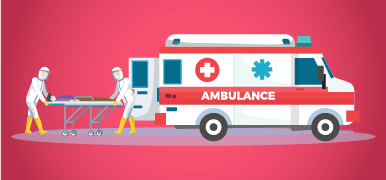
read more
https://storage.googleapis.com/master-transformer-9446/DOSILY/IP%20Courses/Ambulance%20Transfer%20Of%20COVID-19%20Patients/Ambulance%20Transfer%20Of%20COVID-19%20Patients.mp4
Ambulance Transfer Of COVID-19 Patients
 30K
30K

free
Ambulance Transfer Of COVID-19 Patients

read more
https://storage.googleapis.com/master-transformer-9446/DOSILY/IP%20Courses/Facility%20Setup%20To%20Deal%20With%20COVID-19%20Outbreak/Facility%20Setup%20To%20Deal%20With%20COVID-19%20Outbreak.mp4
Facility Setup To Deal With COVID-19 Outbreak
 31K
31K

free
Facility Setup To Deal With COVID-19 Outbreak

read more
https://storage.googleapis.com/master-transformer-9446/DOSILY/IP%20Courses/FICCI%20Sensitisation%20Module%20On%20COVID-19%20For%20General%20Public/FICCI%20Sensitisation%20Module%20On%20COVID-19%20For%20General%20Public_V2.mp4
FICCI Sensitisation Module On COVID-19 For General Public
 25.8K
25.8K

free
FICCI Sensitisation Module On COVID-19 For General Public
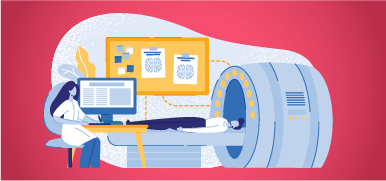
read more
https://storage.googleapis.com/master-transformer-9446/DOSILY/IP%20Courses/Training%20of%20Laboratories%20or%20Diagnostic%20Centers%20Based%20Healthcare%20Workers%20(HCWs)/Training%20Of%20HCWs%20Working%20In%20Laboratories%20Diagnostic%20Lab.mp4
Training of Laboratories or Diagnostic Centers Based Healthcare Workers (HCWs)
 23.9K
23.9K

free
Training of Laboratories or Diagnostic Centers Based Healthcare Workers (HCWs)

read more
https://storage.googleapis.com/master-transformer-9446/DOSILY/IP%20Courses/Management%20of%20Gestational%20Diabetes/Gestational%20Diabetes%20Explainer.mp4
Management of Gestational Diabetes
 15.8K
15.8K

free
Management of Gestational Diabetes

read more
https://storage.googleapis.com/master-transformer-9446/DOSILY/IP%20Courses/Leveraging%20Healthcare%20Informatics%20in%20the%20management%20of%20COVID-19/Leveraging%20Healthcare%20Informatics%20in%20the%20management%20of%20COVID-19_V3.mp4
Leveraging Healthcare Informatics in the management of COVID-19
 25.7K
25.7K

free
Leveraging Healthcare Informatics in the management of COVID-19
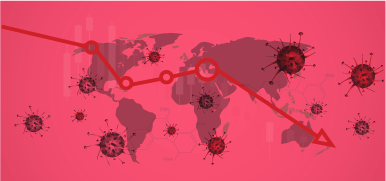
read more
https://storage.googleapis.com/master-transformer-9446/DOSILY/IP%20Courses/COVID-19%20Pandemic%20and%20Its%20Global%20Impact/COVID%2019%20pandemic%20and%20global%20impact.mp4
COVID-19 Pandemic and Its Global Impact
 24.7K
24.7K
free
COVID-19 Pandemic and Its Global Impact
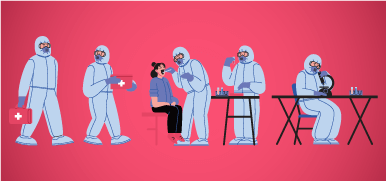
read more
https://storage.googleapis.com/master-transformer-9446/DOSILY/IP%20Courses/SARS%20COV-2%20Testing/SARS%20COV-2%20Testing_V2.mp4
SARS COV-2 Testing
 38.3K
38.3K
free
SARS COV-2 Testing
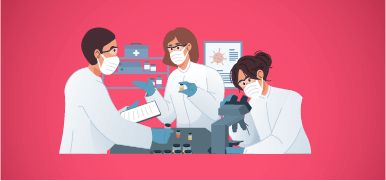
read more
https://storage.googleapis.com/master-transformer-9446/DOSILY/IP%20Courses/Management%20of%20Comorbidities%20in%20COVID-19%20Pandemic/COVID-19%20and%20Comorbities.mp4
COVID-19 Issues Concerning Pregnancy
 35.3K
35.3K
free
COVID-19 Issues Concerning Pregnancy

read more
https://storage.googleapis.com/master-transformer-9446/DOSILY/IP%20Courses/COVID-19%20and%20Mental%20Health/Mental%20Health%20and%20COVID-19.mp4
COVID-19 and Mental Health
 49.2K
49.2K
free
COVID-19 and Mental Health
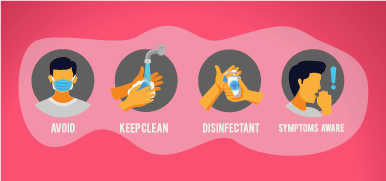
read more
https://storage.googleapis.com/master-transformer-9446/DOSILY/IP%20Courses/Infection%20Prevention%20%26%20Control%20(IPC)%20guidelines%20for%20COVID-19/IPC%20guidelines%20for%20COVID-19.mp4
Infection Prevention & Control (IPC) guidelines for COVID-19
 70.8K
70.8K
free
Infection Prevention & Control (IPC) guidelines for COVID-19
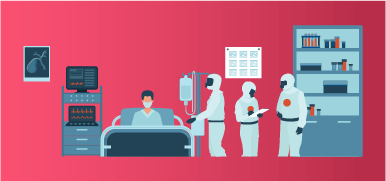
read more
https://storage.googleapis.com/master-transformer-9446/DOSILY/IP%20Courses/COVID-19%20Management%20in%20ICU/COVID%20in%20ICU.mp4
COVID-19 Management in ICU
 48.6K
48.6K
free
COVID-19 Management in ICU
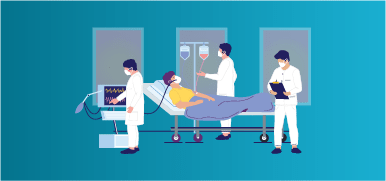
read more
https://storage.googleapis.com/master-transformer-9446/DOSILY/IP%20Courses/Advance%20Training%20in%20Mechanical%20Ventilation/Advanced%20training%20in%20Mechanical%20Ventilation.mp4
Advance Training in Mechanical Ventilation
 71K
71K

free
Advance Training in Mechanical Ventilation
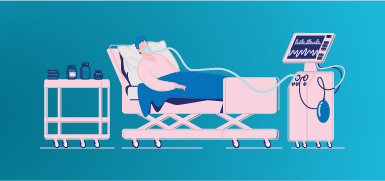
read more
https://storage.googleapis.com/master-transformer-9446/DOSILY/IP%20Courses/Basics%20of%20Mechanical%20Ventilation/Basics%20of%20Mechanical%20Ventilation.mp4
Basics of Mechanical Ventilation
 91.1K
91.1K

free
Basics of Mechanical Ventilation
Our alumni and partners
- Contact Us
- [email protected]
- Dosily 8, The Green Ste A, Dover, Kent, Delaware 19901.
- Powered by Medvarsity
Copyright 2021 Dosily.com










